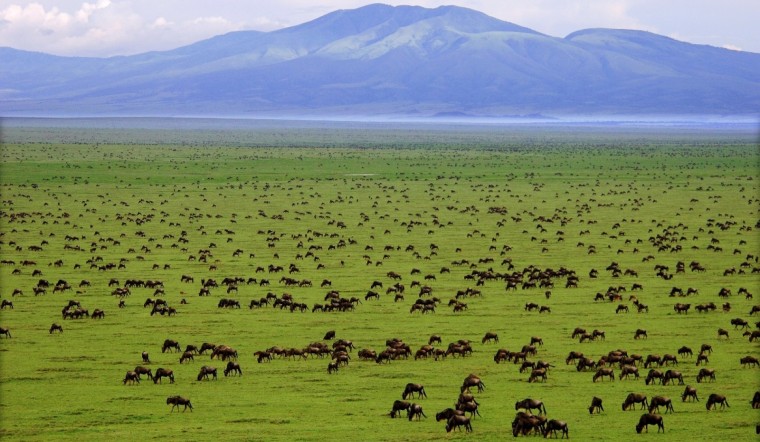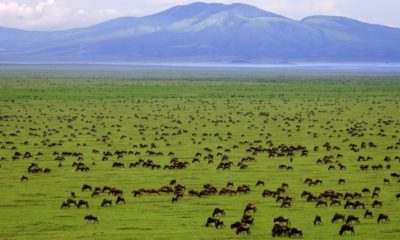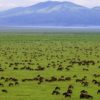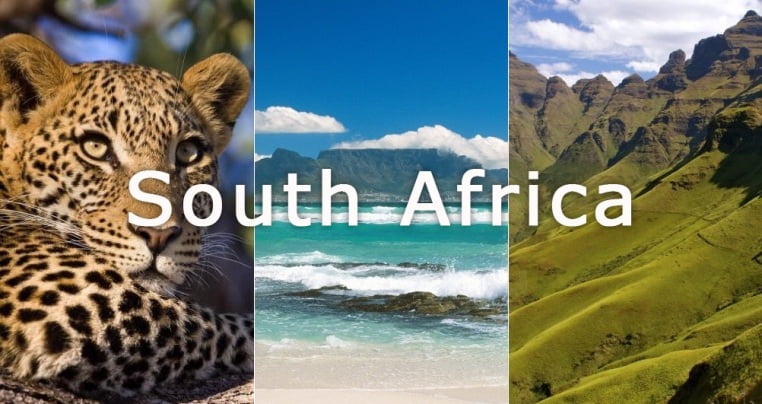Africa
Backpacking Tanzania Need To Know
Basics
Languages:
Capital:
Currency:
| Dial Code:
International Access Code:
Emergency Services Number:
Time Difference:
|
Recommended For Further Information On Tanzania
Lonely Planet East Africa
The below is a very basic guide. If you are heading to Tanzania I highly recommend picking up a copy of Lonely Planet’s; East Africa. It provides the most relevant, up-to-date advice on what to see and what to skip. It also includes coverage of Uganda, Kenya, Rwanda, Burundi, the Democratic Republic of the Congo, and the Zanzibar Archipelago…

Entry
Most visitors need a tourist visa to enter Tanzania. It is highly advisable to obtain a three-month visa before travel from a Tanzanian High Commission or Embassy for around US$50 for single entry or US$100 for multiple entry.
Your passport should be valid for a minimum period of 6 months from the date of your visa application.
Yellow fever vaccination is required for travellers arriving from countries with risk of yellow fever transmission.
For official information visit your home government travel bureau.
Places To Visit In Tanzania
The Serengeti is perhaps the most famous national park in Africa, known for its annual migration of millions of wildebeest and zebra.
It has the highest concentration of large mammals (and lions!) in the world. Next…
Getting Around
Don’t accept lifts from strangers or use unlicensed taxis. Ask your local hotel to book a taxi and always ask to see the driver’s ID.
More detail is to come in this section, but you can read about general advice regarding Getting Around When You Get There
Accommodation
Tanzania has hostels in major cities and tourist areas. Hotels are also relatively cheap, but vary in quality. Camping is also a viable option, but only use official sites.
Read more about Accommodation When You Get There and Living in Hostels
Food And Health
Food hygiene and safety is improving, but isn’t up to Western standards. Use your instincts; if the place looks dirty, don’t eat there; if your food isn’t piping hot, don’t eat it.
Water is not safe to drink, so stick to bottled or boil.
Medical facilities are limited, especially outside Dar es Salaam. Make sure you have adequate travel health insurance and accessible funds to cover the cost of medical treatment abroad, evacuation by air ambulance and repatriation.
Malaria and dengue fever are common to Tanzania. Always contact your GP around 8 weeks before your trip to check whether you need any vaccinations or other preventive measures. Visit here for Recommended Vaccinations and read here for more about Travelling Health In General
Weather & Time To Go
Temperatures year round are usually around 30°C in the day time and 20°C at night. The best times to visit are the tail-ends of the two rainy season; June to August and January to February. The timing of the wildebeest migration is entirely dependent upon the rainfall patterns each year, but usually commences around December, so you will be sure to see huge herds between January and February.
Communications
Internet is generally slow, but accessible in most towns, hotels and lodges. International calling cards are cheaply available in large towns.
Dangers And Considerations
Most visits to Tanzania are trouble-free, but violent and petty crime does happen, particularly in Dar es Salaam.
There have been cases of tourists being kidnapped, robbed and forced with the threat of violence to withdraw cash from ATMs and arrange cash transfers through Western Union after being befriended by strangers or using unlicensed taxis.
In Dar es Salaam, backpackers have been targeted in the city centre, at Ubungo bus station, the peninsula area and Coco beach. In Zanzibar incidents have taken place in Stone Town and on popular tourist beaches. Avoid walking alone, particularly in isolated areas and on beaches.
Protests are common, you should avoid all public gatherings and mass demonstrations, as they can sometimes turn violent.
There are risks associated with viewing wildlife, particularly on foot or at close range. Always follow park regulations and wardens’ advice, and make sure you have the correct documentation or permit before entering a national park.
If you are trekking or climbing, only use a reputable travel company, stick to established routes and always walk in groups.
Homosexuality is illegal in Tanzania.
Carry identification at all times.
Dangers constantly change. Always check with your foreign office (British Foreign Office webpage) or travel advice bureau for the latest information regarding your destinations safety.
Read more about Safety And Security here
Respecting Culture
Tanzanians are welcoming and well disposed towards visitors, but you should be sensitive to local culture. Loud or aggressive behaviour, drunkenness, foul language and disrespect, especially towards older people, will cause offence.
There is a high proportion of Muslims in Tanzania, especially along the coast and on Zanzibar and Pemba. Respect local traditions, customs, laws and religions at all times and be aware of your actions to ensure that they don’t offend, especially during the holy month of Ramadan or if you intend to visit religious areas.
You should dress modestly. Women should avoid wearing shorts and sleeveless tops away from tourist resorts, and particularly in Stone Town and other places where the local population may be offended.
You should always ask before taking pictures of the Masai people, and they expect to be paid for it.








